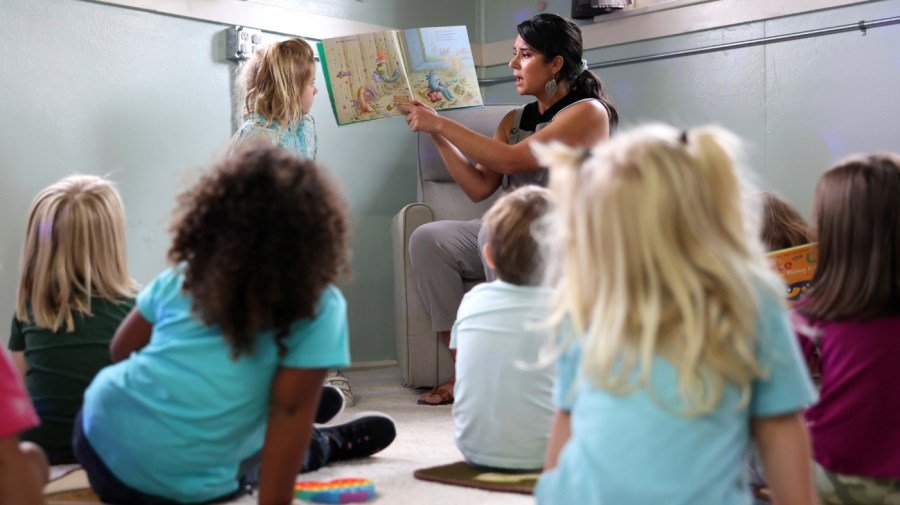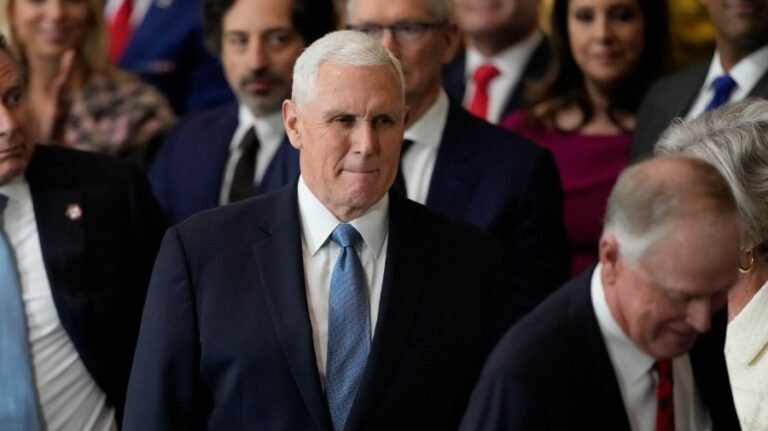
Corrine Hendrickson opened Corrine’s Little Explorers in New Glarus, Wisconsin nearly 18 years ago. She has served 70 children since then in her family child care business.
But in August, she will be closing her doors, because operating the program is simply no longer sustainable.
Similarly, Seedlings to Sunflowers, a child care program in Maine, is struggling. Forced to raise rates to meet rising expenses, it instead created a funding gap as parents left the program because they no longer could afford it. Seedlings recently crowdfunded $25,000 from community members and families to stay open, but this is not a sustainable strategy.
Meanwhile, a mom in Bedford, Ohio was paid too little to afford child care — which cost her nearly twice family’s rent — but too much to qualify for assistance. Ultimately, her husband quit his job to care for their child.
These are some of the many reasons I am not doing a victory lap for the relatively meager child care provisions in the Trump mega-bill signed into law in July.
The provisions in the bill would do nothing to help people like Hendrickson keep serving children. It would not allow Seedlings to Sunflowers keep its rates affordable or support families like the Ohio mother’s family to find and afford child care.
In this bill, Republicans haven’t given families any new child care options or opportunities. The child care sector will not get new resources to expand or essential support for more stable operations, which means families will still struggle to find child care options that work for them. And the families that do find options still will have trouble paying the high prices.
Some families may receive a bit more money through the bill’s tax credit increase to help pay for child care. But the average credit for those who receive it will be about $890 — a small dent in the average annual child care cost of $13,128.
Even those few families who might receive the new maximum credit of $3,000 will still be on the hook for a significant payment, which their low incomes will not likely accommodate.
Meanwhile, many families will see their health care and food bills rise as a result of the bill, which may offset the increased child care credit. And if their child care provider is losing health insurance at the same time or leaving a job because of the bill’s cuts to Medicaid, their child care arrangement may become more unstable.
The bill’s support for child care relies on tax credits and deferrals, disproportionately benefiting wealthier families and corporations — an overall theme of the bill itself. Specifically, the bill expands three tax programs.
- The Child and Dependent Care Tax Credit is a credit that comes to you after you have spent the money up front. The credit won’t be of any use if you can’t afford to pay for child care up front, can’t find care that meets your needs or don’t earn enough to pay taxes.
- The Dependent Care Assistance Program allows parents whose employers participate to opt into accounts that set aside pre-tax dollars to pay for child care expenses. Parents who use these flexible spending accounts cannot also use the Child and Dependent Care Tax Credit for the same expenses.
- The Employer-Provided Child Care Credit provides employers a tax credit for spending resources on child care-related expenses.
What families need is reliable, stable child care options that meet their needs — affordable, convenient, with no wait list. They want to know their children are safe, happy, healthy and learning, and the early educators who care for them are being paid well to stay in the profession they love. The big Republican bill provides none of that.
We’re holding our elected officials to too low a standard if we are calling this bill a child care win for families when millions will still be left struggling to find and afford child care. When taken in its entirety, the bill is a major net loss for children and families.
It is hard to squint at this and see “incremental progress” and “bipartisan support” when Republicans control Washington and insist on throwing child care policy into chaos.
They have been freezing, unfreezing, delaying and then moving forward child care and Head Start funding to states and programs, and proposing cuts to major child care and early learning programs in their federal budget proposal.
Not to mention the DOGE cuts that pushed out about half of federal Office of Child Care staff and shut down important regional Child Care and Head Start offices.
Political leadership should strive toward a future where Hendrickson, the mother in Ohio and families around the country would have something to celebrate.
We already see candidates for governor in New Jersey and Virginia centering their plans for affordable child care in their campaigns. Same goes for Zohran Mamdani’s upset victory in New York City where he ran on free child care made possible by richer New Yorkers paying their fair share.
We should hold our elected representatives to a higher standard to address the concerns of families, not jump up and down when they mention those concerns while backing up the Brinks truck for the wealthy.
Julie Kashen is the director of Women’s Economic Justice and senior fellow at the Century Foundation.






